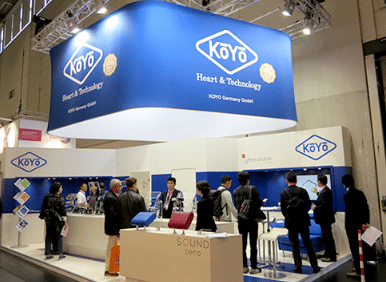
Introduction:
In the world of industrial machinery, the ability to withstand heavy loads is a paramount consideration when selecting bearings. KOYO and NACHI, both esteemed manufacturers, have earned their reputations for producing bearings with exceptional load-carrying capacity. In this article, we will conduct a thorough performance comparison of KOYO and NACHI bearings in terms of their load-bearing capabilities, shedding light on the factors that differentiate them in this crucial aspect.
- KOYO Bearings:
KOYO bearings have long been celebrated for their impressive load-carrying capacity. They are engineered to withstand substantial radial and axial loads, making them ideal for applications involving heavy machinery and equipment. Key factors contributing to KOYO’s load-bearing prowess include:
Precision Engineering: KOYO’s precision manufacturing ensures that their bearings can evenly distribute loads, minimizing stress points and enhancing load-carrying capabilities.
Material Selection: KOYO uses high-quality materials that exhibit excellent strength and durability, allowing their bearings to endure heavy loads without deformation.
Advanced Lubrication: Proper lubrication is crucial for load-bearing capacity. KOYO bearings are designed to maintain efficient lubrication even under high-stress conditions, reducing friction and wear.
- NACHI Bearings:
NACHI bearings also hold their own when it comes to load-carrying capacity. They are engineered to handle significant radial and axial loads, making them a dependable choice for various industries. NACHI’s load-bearing capabilities are influenced by several factors:
Robust Design: NACHI’s robust bearing design allows for the distribution of loads evenly, minimizing stress concentration areas and enhancing load-carrying capacity.
Material Expertise: NACHI selects materials that offer excellent resistance to fatigue and deformation under heavy loads, ensuring that their bearings can handle demanding applications.
Innovative Lubrication: NACHI’s advanced lubrication technologies reduce friction and heat generation even under high loads, contributing to the overall load-bearing performance.
- Application Versatility:
Both KOYO and NACHI bearings are versatile and adaptable to a wide range of applications. Whether it’s in construction equipment, automotive machinery, or manufacturing processes, both manufacturers have demonstrated their ability to provide bearings that excel under heavy loads.
- Longevity and Durability:
The load-bearing capacity of bearings is closely tied to their longevity and durability. Both KOYO and NACHI prioritize durability in their bearing designs. Bearings that can withstand heavy loads without succumbing to wear and fatigue tend to have longer service lives, reducing maintenance and replacement costs for industrial machinery.
Conclusion:
In the showdown of load-bearing capacity between KOYO and NACHI bearings, both contenders display impressive capabilities. The choice between the two should be based on the specific requirements of your machinery and the nature of your application. Both manufacturers have demonstrated their dedication to producing bearings that can bear the weight of industrial demands, offering reliable and long-lasting solutions to various industries.
Ultimately, whether you opt for KOYO or NACHI bearings, you can trust in their ability to handle heavy loads and contribute to the smooth and efficient operation of your industrial equipment. The performance and reliability of these bearings in load-bearing scenarios make them trusted choices in the world of industrial machinery.
